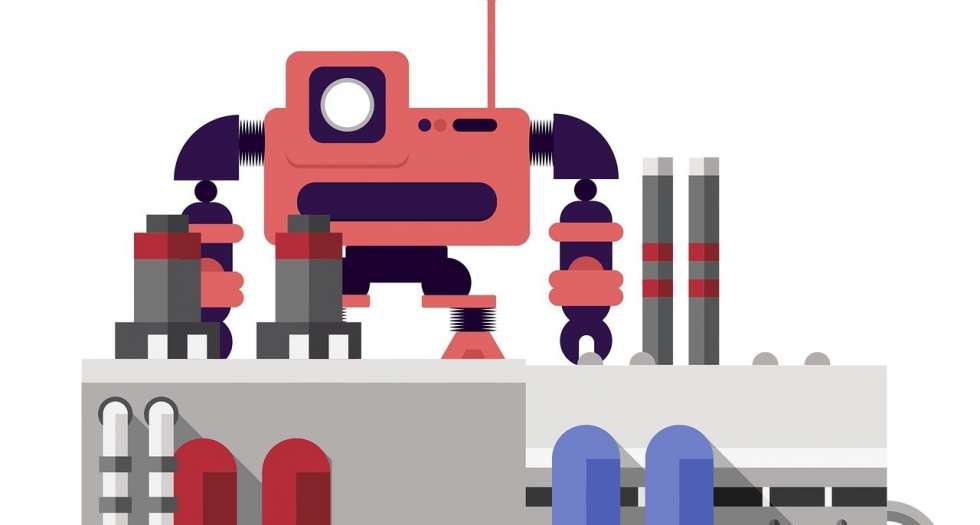If you thought automation technologies were just for large corporations and factories filled with robots, you would be wrong. Automation tools are now more affordable than ever before and help streamline everything from customer relations to marketing to internal processes.
Business automation helps companies of all sizes boost efficiencies, deliver better customer experiences, and free up staff to focus on more important tasks while cutting costs. This makes it critical for small businesses who want to remain competitive in an increasingly crowded marketplace.
“66% of businesses were piloting tools to automate at least one business process (up from 57% in 2019),” McKinsey
However, the percentage of companies that have fully automated at least one function grew more modestly from 29% to 31% over two years.
In 2021, what should small businesses automate? Let’s take a look.
1. Marketing
When it comes to small businesses, automation probably has the most significant impact on marketing.
“The marketing automation software market is expected to be worth around $16.87 billion by 2025,” Mordor Intelligence
As automation optimises different marketing verticals, let’s break it down:
Build Customer Loyalty
Marketing automation helps enterprises automate highly personalized campaigns and build relationships and loyalty with customers. It also provides companies with an opportunity to remember each client’s birthday and a chance to make an emotional connection with them.
If you’re selling essential items, you can remind customers to replenish their dwindling stocks. Through proactive, automated prompts, small businesses ensure future sales and continuous engagement.
In this scenario, the clock starts as soon as a product is sold. Follow up emails and prompts are triggered when a predetermined length of time has passed. For example, if you sold a 30-day supply of a product, reminders are triggered shortly before it’s time to order again.
Enhance Your Customer Service With Chatbots
Chatbots save small businesses money by engaging with customers directly on websites and social media platforms.
“Customer interactions using machine learning (ML) technology in chatbots will rise to 70% in 2022 (up from 15% in 2018),” Gartner
In this scenario, if customers have questions that can’t be answered by smart algorithms and prewritten templates, the conversation is then escalated to the appropriate human agent.
However, with the help of ML, these virtual agents will only get better over time, negating the need to hire human customer service agents. What’s more, chatbots work 24/7, even on holidays, and can schedule an appointment with a human customer service representative during non-business hours.
Respond to Email Requests Immediately
If you have a “contact us” button on your website, you’re going to get some emails. If you’re attracting a lot of traffic, this can quickly get overwhelming. As response times have a considerable impact on qualifying leads, automation is now key to customer engagement.
For example, when a potential customer reaches out, your automation software can respond immediately with a prewritten template that sounds like a human has just read the email and responded to them. This approach helps small businesses buy time while the platform assigns a salesperson the task of contacting the prospect.
2. Sales
Whether it’s an online operation or sales reps working the phones, automation is now available to enhance the sales process. For example, we now have automation tools to guide the customer through the buyer’s journey.
Automation technologies also tag prospects, create branch campaigns, follow their progress, and close the deal. When smart algorithms handle the entire sales process, you also don’t need to pay commissions.
Several fully automated sales CRM tools come with all the bells and whistles. Some of the leading platforms are as follows:
- Pipedrive
- Salesforce
- Zoho
Sales teams can also automate online sales funnels with apps like Builderall, ClickFunnels, and Leadpages. Think of artificial intelligence (AI) that’s supporting your salespeople from behind the scenes.
Enterprises that want to leverage automation must first formulate a robust strategy. This approach helps avert disruptions, put protocols in place to address staff concerns (as most fear that AI will replace them), and helps businesses get the most out of smart technologies.
Through planning, enterprises can identify the right technologies for their business model. Furthermore, they can prepare staff and get them used to the idea of automation.
Evolve client case story
Signet Jewelers is the world’s largest diamond jewellery retailer with more than $6 billion in annual sales and stores in the UK, US and Canada.
Signet had been manually setting goals and expectations for their sales staff for a while, and the process was clunky, ineffective and time-consuming. As a result, Signet’s salespeople couldn’t determine fast enough targets they had to hit to qualify for bonuses. On the other hand, store managers couldn’t verify those targets correctly; nor could they track employee performance against them. There was a feeling of confusion and frustration across the business. And at that point, the company chose to hire Evolve to automate its target-setting process.
A bespoke solution we built and delivered to Signet consisted of the application that feeds data from numerous sales points into a centralised hub and updates it every 15 minutes. Each jewellery store could log in to the system to instantly review targets assigned by product line managers and sales staff members.
The new bespoke system allowed for significant time-saving on targets setting and review: a process that took 15 minutes and involved scribbling on paper is now entirely digitised and takes just 2 minutes. This also translates to financial savings, which amount to almost £200,000 per year across several stores.
Another benefit is that now not only individual store managers can check their employees’ performance against targets, but the head office can do the same on a macro level, comparing store performance side-by-side.
3. Operations
Small businesses that automate business operations are in line for a handsome payoff. For example, warehouse automation isn’t only for giants like Amazon. You, too, can leverage warehouse automation tools to track goods and more.
In this scenario, there are a variety of options like the following:
- Low automation
- Mechanized automation
- Sophisticated automation
You can automate functions like employee scheduling, meeting scheduling, social media scheduling, appointment scheduling, and management. There are plenty of apps that help businesses engage in scheduling activities that are often mundane.
You can also automate your office supply orders to save time and focus on more meaningful tasks. Finally, small businesses can automate functions like accounting, invoicing, collecting and processing job applications, and so on. In fact, experts predict that the global market for accounting automation will grow from $11 billion to $20.4 billion, at a CAGR of 8.02% from 2018 to 2026.
If your operations can’t be optimised through available automation tools, you can always take the bespoke development route (and of course, we can help!).
Do you need help automating your small business operations? Schedule a commitment-free consultation with one of our automation experts.

